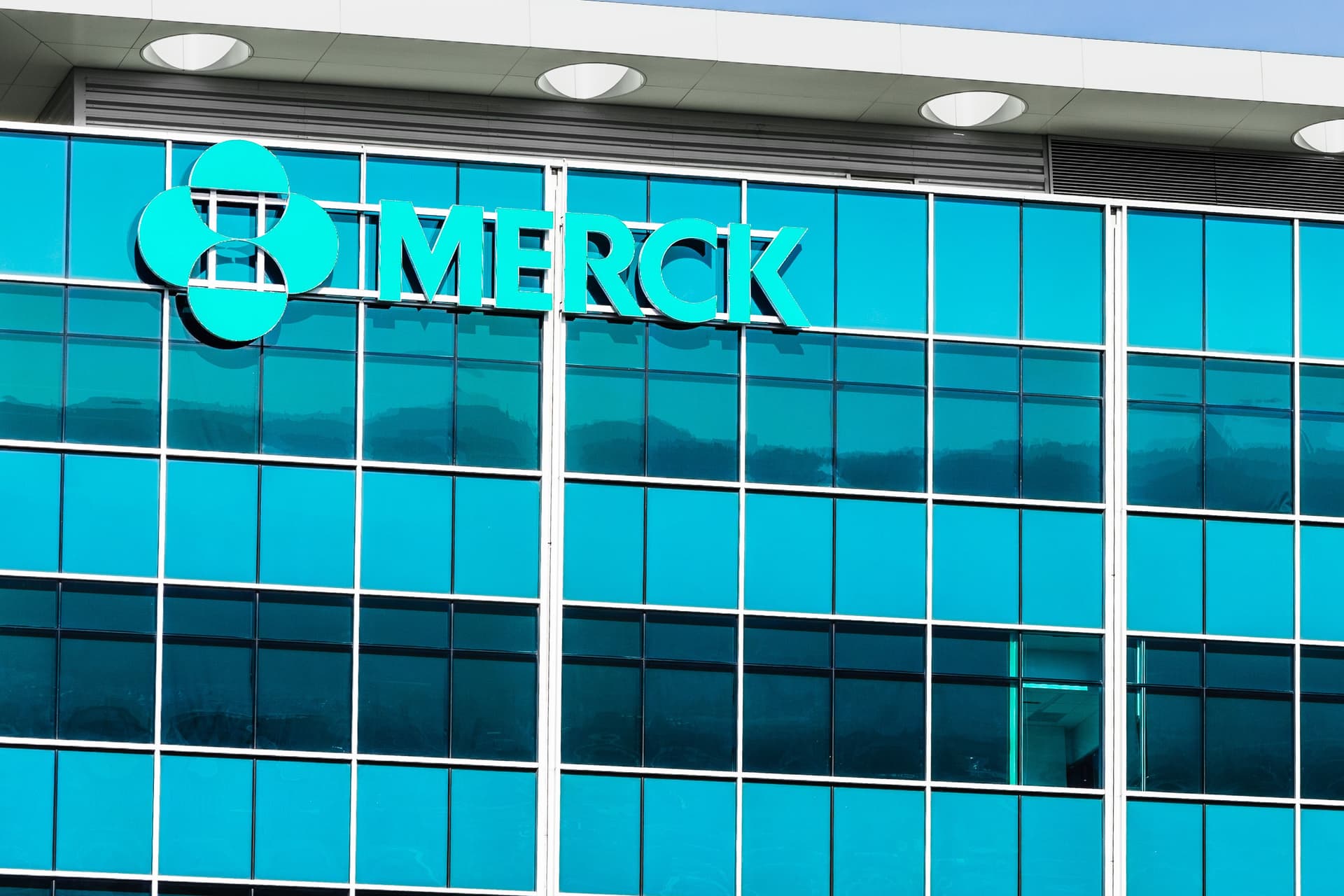Merck execs say they expect a $200m hit from Trump tariffs
Pharma companies are highlighting their US investments as the government threatens pharmaceutical tariffs.

Sundry Photography/Getty Images
• 3 min read
Maia Anderson is a senior reporter at Healthcare Brew, where she focuses on pharma developments like GLP-1s and psychedelic medicine, pharmacies, and women's health.
Merck is following Johnson & Johnson’s lead and reporting an expected financial hit from tariffs imposed by the Trump administration.
In an April 24 earnings call, executives said they expect $200 million in tariff-related costs in 2025. Merck lowered its full-year profit expectations from $8.88–$9.03 per share to $8.82–$8.97 per share.
The news comes a week after J&J executives said they expect $400 million in tariff-induced expenses in 2025.
Robert Davis, Merck’s chairman and CEO, said during the earnings call that the impact will primarily come from existing tariffs implemented “between the US and China, and to a lesser degree, Canada and Mexico.”
Although the threat of pharmaceutical tariffs looms following the Department of Commerce’s announcement on April 14 that the Trump administration is investigating the national security implications of pharmaceutical imports, Davis didn’t seem particularly worried.
“With respect to potential additional tariffs by the US specifically on pharmaceuticals, our global supply chain and current inventory levels put us in a good position to navigate potential near-term impacts,” he said.
When asked during the earnings call how Merck is preparing for potential pharmaceutical tariffs, Davis said the company has identified ways to “reposition” its manufacturing, including changing the priorities of existing plants, bringing on external manufacturing, and building internal manufacturing.
Merck has invested $12 billion in US-based manufacturing since 2018 and plans to invest an additional $9 billion through 2028, Davis said, adding that the company’s investments “are leading to more of our products for US patients being manufactured in the US as well as more opportunities for export.”
Navigate the healthcare industry
Healthcare Brew covers pharmaceutical developments, health startups, the latest tech, and how it impacts hospitals and providers to keep administrators and providers informed.
Zoom out. Merck isn’t the only drugmaker highlighting US investments.
J&J executives in March said the company plans to invest $55 billion in US manufacturing over the next four years. And in February, Eli Lilly executives said the company will invest at least $27 billion to open four new US-based plants over the next five years.
All three drugmakers have said their decisions to expand US manufacturing were due to the 2018 Tax Cut and Jobs Act, which lowered the domestic tax rate for pharmaceutical companies.
Tax policy, rather than tariffs, is a “very effective tool to be able to build manufacturing capacity here in the US, both for medtech and pharmaceuticals,” J&J CEO Joaquin Duato said during the company’s earnings call.
A quick rundown. Merck’s worldwide sales for Q1 2025 were $15.5 billion, down 2% from Q1 2024.
Despite lowering 2025 profit expectations, the company said it still expects worldwide sales to fall between $64.1 billion to $65.6 billion this year.
Merck is also preparing for its blockbuster cancer drug Keytruda, which single-handedly accounts for more than 45% of the drugmaker’s global drug sales, to face patent expiration in 2028. Keytruda sales rose 4% during the quarter to $7.2 billion, up from $6.9 billion in the same quarter last year, though senior research analyst Daina Graybosch wrote in a note following Merck’s earnings call that this was just slightly below Leerink Partners’s expectations.
Navigate the healthcare industry
Healthcare Brew covers pharmaceutical developments, health startups, the latest tech, and how it impacts hospitals and providers to keep administrators and providers informed.